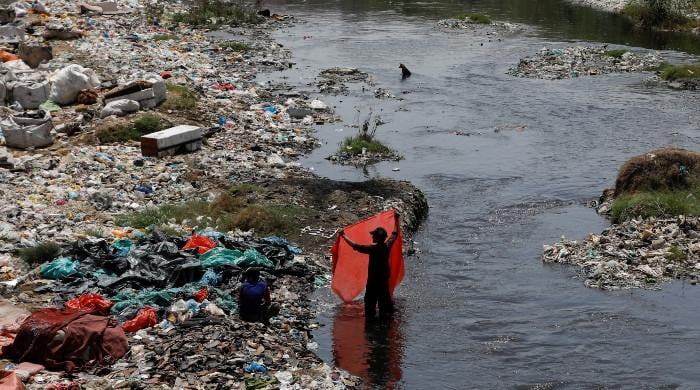Sindh Bans Plastic Bags Province-Wide
The Sindh government has officially prohibited the production, storage, distribution, sale, and use of all types of plastic carrier and shopping bags throughout the province, with the order taking effect on June 15.
According to a formal statement from the Environment, Climate Change, and Coastal Development Department (ECC&CDD), this comprehensive ban encompasses all non-degradable, oxo-degradable, black, and recycled plastic bags, regardless of their dimensions or thickness.
This determination aligns with the Sindh Prohibition of Non-Degradable Plastic Products Rules of 2014 and is authorized by Section 14(3) of the Sindh Environmental Protection Act of 2014.
After the Sindh cabinet formally endorsed the modification on April 15, the ECC&CDD released the official directive on April 30, instructing all relevant government offices to initiate enforcement measures.
This action is being implemented as Pakistan confronts a growing nationwide crisis related to plastic pollution, with government officials increasingly recognizing the issue as a critical threat to public health.
On the International Day of Zero Waste, observed annually on March 30, Senator Sherry Rehman, who chairs the Senate Standing Committee on Climate Change, cautioned that plastic waste is obstructing urban centers, waterways, and reservoirs, while also polluting sources of food and drinking water.
She stated that Pakistan produces 49.6 million tons of solid waste each year; however, only 1% of plastic waste undergoes recycling, in comparison to a global recycling rate of 9%. The remaining waste accumulates in landfills, drainage systems, and rivers, positioning the Indus River as the second most contaminated river worldwide due to plastic pollution.
In her appeal for systematic changes over token restrictions, Senator Rehman stated, “This is not a problem for tomorrow. It’s a crisis today,” highlighting the proliferation of illnesses linked to waste and the disintegration of sanitation systems in urban areas.
She also emphasized that Pakistan utilizes 55 billion plastic bags on an annual basis, and this consumption rate is anticipated to increase by 15% each year.
In related news, the Punjab government has also started taking action.
Earlier in January, Imran Hamid Sheikh, the Director General of the Punjab EPA, declared a ban on plastic bags with a thickness less than 75 microns. He also described initiatives intended to encourage plastic recycling and foster behavioral changes through educational campaigns and alliances between the public and private sectors.



Comments (0)
No comments yet. Be the first to comment!
Leave a Comment